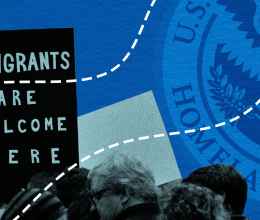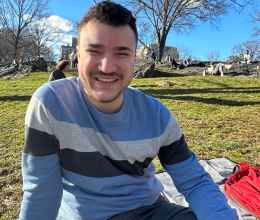Portland - A federal court in Hawaii temporarily blocked President Trump’s second travel ban last night, hours before it would have gone into effect. This morning, another federal court in Maryland specifically blocked the order’s 90-day ban on immigration from six Muslim-majority countries.
“I feel encouraged knowing that this discriminatory ban won’t go into effect today,” said Mahmoud Hassan. “I am a Muslim and an immigrant from Somalia, one of the countries on President Trump’s target list. My community here in Maine has been paralyzed by fear that we might not be reunited with our friends and family who are desperately seeking a safer, better life for themselves and their children. All I want is for them to have the same opportunities that I, and millions of immigrants before me, have had.”
Maine has approximately 12,500 African immigrants, including refugees from Somalia and Sudan, according to the Immigrant Resource Center of Maine. Many of the refugees who have been resettled in Maine in recent years have fled war or genocide in their home countries. They sought safety in neighboring countries and refugee status through the United Nations before being placed in refugee camps to await resettlement in another country. Many of them waited years, and in some cases decades, to be resettled.
“Once again the Constitution has thwarted the president’s attempts to pass a discriminatory Muslim ban,” said Sue Roche, executive director of the Immigrant Legal Advocacy Project. “However, we must remain vigilant. The court issued a temporary halt on the order, and we will be watching closely to see what happens next.”
The American Civil Liberties Union and partner organizations brought a challenge to the ban in U.S. District Court in Maryland.
“Try as he might, the president’s attempts to single out one religion for discriminatory treatment will never pass constitutional muster,” said Alison Beyea, executive director at the ACLU of Maine. “We will continue to challenge these unconstitutional orders in court for as long as it takes.”






